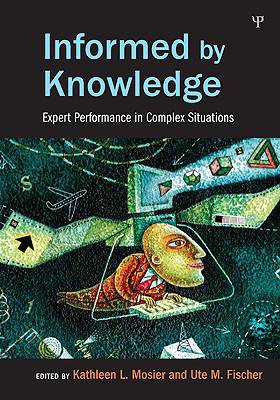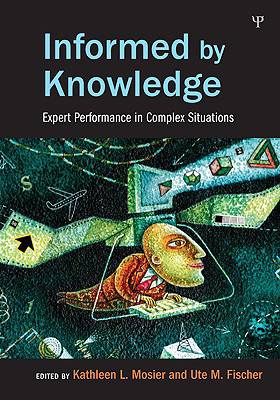
- Afhalen na 1 uur in een winkel met voorraad
- Gratis thuislevering in België
- Ruim aanbod met 7 miljoen producten
- Afhalen na 1 uur in een winkel met voorraad
- Gratis thuislevering in België
- Ruim aanbod met 7 miljoen producten
Informed by Knowledge
Expert Performance in Complex Situations
Omschrijving
The focus of this book is on how experts adapt to complexity, synthesize and interpret information in context, and transform or "fuse" disparate items of information into coherent knowledge. The chapters examine these processes across experts (e.g. global leaders, individuals in extreme environments, managers, police officers, pilots, commanders, doctors, inventors), across contexts (e.g. space and space analogs, corporate organizations, command and control, crisis and crowd management, air traffic control, the operating room, product development), and for both individual and team performance. Successful information integration is a key factor in the success of diverse endeavors, including team attempts to climb Mt. Everest, crowd control in the Middle East, and remote drilling operations.
This volume is divided into four sections, each with a specific focus on an area of expert performance, resulting in a text that covers a wide range of useful information. These sections present well-researched discussions, such as: the management of complex situations in various fields and decision contexts; technological and training approaches to facilitate knowledge management by individual experts and expert teams; new or neglected perspectives in expert decision making; and the importance of 'modeling' expert performance through techniques and frameworks such as Cognitive Task Analysis, computational architectures based on the notion of causal belief mapping such as 'Convince Me, ' or the data/frame model of sensemaking.
The volume provides essential reading for researchers and practitioners of Naturalistic Decision Making and those who study Expertise; Organizational and Cognitive Psychologists; and researchers and students in Business and Engineering.
Specificaties
Betrokkenen
- Uitgeverij:
Inhoud
- Aantal bladzijden:
- 432
- Taal:
- Engels
- Reeks:
Eigenschappen
- Productcode (EAN):
- 9781848729117
- Verschijningsdatum:
- 22/09/2010
- Uitvoering:
- Hardcover
- Formaat:
- Genaaid
- Afmetingen:
- 178 mm x 254 mm
- Gewicht:
- 929 g

Alleen bij Standaard Boekhandel
Beoordelingen
We publiceren alleen reviews die voldoen aan de voorwaarden voor reviews. Bekijk onze voorwaarden voor reviews.











